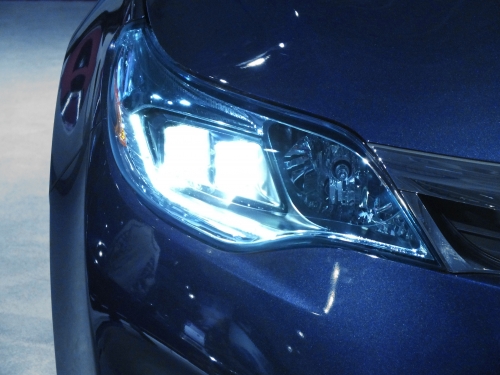
Imagine you’ve stopped at a junction and a friendly oncoming driver is flashing their lights at you, signalling that they’re allowing you to pass. Surely you’d proceed? There’s no reason not to. Only as you’re passing, said vehicle doesn’t slow down for you. They just keep coming.
Or perhaps you’re driving along as you would normally and out of nowhere the car in front brakes excessively for no apparent reason. Despite your best efforts, you plough into the back of their car. When leaving your own vehicle you realise there was no need for the car in front to stop at all. Unless, that is, the driver was attempting an insurance scam.
These unfortunate incidents are known as ‘flash for cash’ and ‘crash for cash’ scams. If you’re one of the people hit by these crafty con artists it can be difficult to prove that you’re innocent.
Are you at risk?
Although these con artists choose their victims randomly, they may look out for particularly inexperienced drivers to enhance their chances of winning a claim. Those venturing out on driving lessons or displaying a P pass sign during their journey could be prime targets in a crash for cash scam.
Whilst your driving instructor insurance will cover you for any accidents that occur during your lesson, it still remains an issue when you can’t prove that you’re the victim. Despite there being two people in the car during a lesson, it’s still your word against the other driver’s, so you’ll need hard indisputable evidence to back up your case.
On-board cameras
Dash cams. Love them or hate them, we can’t deny they’re useful. Many argue that their constant watchful eyes on the road are an invasion of privacy, but to others they’re an insurance policy protecting miracle.
A recent study by RAC found that 39% of motorists are already considering implementing an on-board camera in their car in an attempt to protect themselves from scammers. Filming every aspect of your drive right from your dashboard, these clever pieces of technology provide vital evidence in the event of any road accidents, even ones you are not directly a part of.
Pete Williams, RAC head of external affairs, says: "Accident cameras or in-car cameras are commonplace in some countries where unscrupulous driving practices are a more regular occurrence.
"With 'crash for cash' crimes unfortunately becoming more prevalent on UK roads, motorists are looking to in-car cameras to protect themselves from being taken advantage of."
However, people often forget that these cameras also film your own bad habits and mistakes on the road, so your plan to protect yourself could actually land you in hot water.
Should dash cams be compulsory?
It is becoming increasingly likely that these gadgets will take off in the UK as we combat more false claims, but should they be made compulsory?
The UK has already been named the capital of false whiplash claims, and we don’t need crash for cash scams adding to our problems. Much like the use of telematics, in the future dash cams could even be used to lower your insurance premiums. For now however, the jury is still out on these handy pieces of equipment, but it’s hoped that the mere thought of these cameras being installed could impact the amount of scammers taking huge risks on the roads.
Comments
Go to blog index
